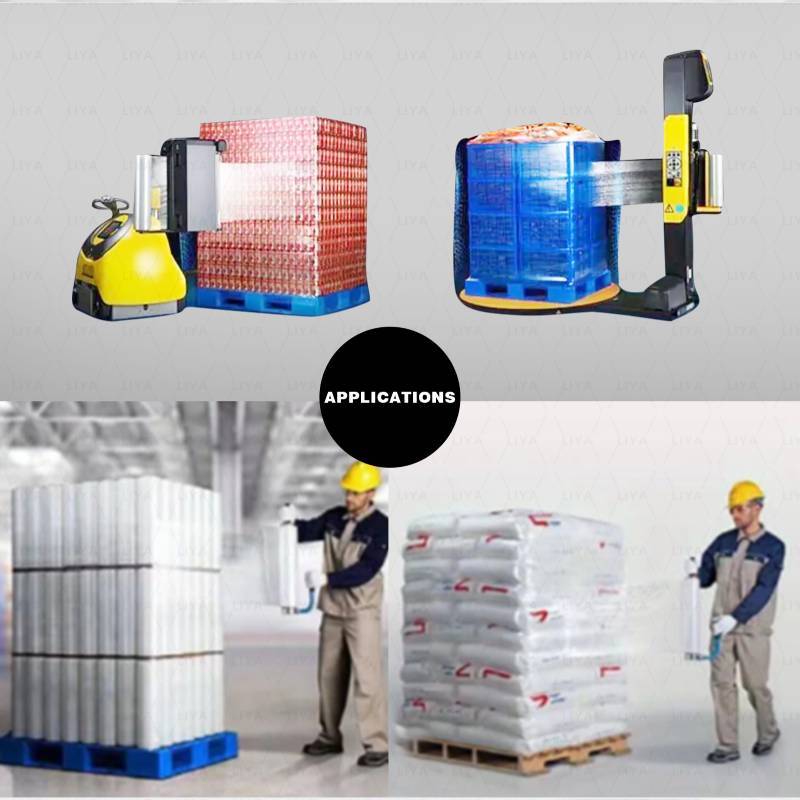BOPP Film Bags Production Companies and Suppliers for Various Industries
The Growing Market for BOPP Plastic Bags A Look at Manufacturers and Trends
Biaxially Oriented Polypropylene (BOPP) plastic bags have carved a niche within the packaging industry due to their robust characteristics, versatility, and environmentally friendly applications. As the demand for sustainable packaging solutions grows, BOPP plastic bag manufacturers are emerging as key players in this dynamic market. This article explores the features, uses, advantages, and market trends associated with BOPP plastic bags, all while highlighting the role of manufacturers in this sector.
Understanding BOPP Plastic Bags
BOPP is a type of polypropylene that has been stretched in two directions (biaxially oriented), giving it enhanced strength and clarity compared to standard polypropylene. BOPP plastic bags are known for their excellent transparency, high tensile strength, and resistance to moisture, making them an ideal choice for various applications, including food packaging, retail bags, and industrial use.
The manufacturing process involves transforming polypropylene resin into a flat film which is then processed, printed, and cut into bags. Because of their durability and aesthetic appeal, BOPP bags are a popular option for brands seeking to enhance their product presentation.
The Advantages of BOPP Plastic Bags
1. Durability BOPP bags exhibit extraordinary strength, which enables them to carry heavy loads without tearing. This makes them particularly suitable for packaging heavy products such as grains, chemicals, and construction materials.
2. Barrier Properties BOPP plastic bags provide excellent moisture resistance and barrier properties, protecting contents from external elements. This characteristic is essential for food packaging, ensuring that products remain fresh and uncontaminated.
3. Printable Surface The smooth surface of BOPP allows for high-quality printing, giving manufacturers the opportunity to create vivid designs and branding elements. This feature is crucial in retail and promotional contexts, as packaging plays a vital role in attracting customers.
4. Recyclability As consumers and governments become increasingly concerned about plastic waste, the recyclability of BOPP bags is an important advantage. BOPP is a type of thermoplastic, meaning it can be reprocessed and reused, aligning with sustainable practices.
5. Cost-Effectiveness BOPP bags are typically more economically viable compared to other types of packaging. Their lightweight nature reduces shipping costs, and their durability minimizes product damage.
Key Manufacturers in the BOPP Market
bopp plastic bags manufacturers

Several manufacturers are making significant strides in the production of BOPP plastic bags, serving diverse sectors. Key players typically invest in advanced technology and innovation to enhance their manufacturing processes. They strive to ensure product quality while adhering to environmental regulations.
2. Asian Manufacturers Countries such as China and India are home to numerous manufacturers that dominate the BOPP market. DuPont and other local companies utilize cost-effective production methods to cater to domestic and international markets.
3. Sustainability-focused Firms Some manufacturers are prioritizing sustainability, investing in eco-friendly materials and practices. These companies offer biodegradable alternatives that appeal to environmentally conscious consumers.
Market Trends
The BOPP plastic bag market is experiencing several trends that manufacturers should keep in mind
1. Sustainability Initiatives With the emphasis on reducing plastic waste, manufacturers are exploring bioplastics and other sustainable materials. This shift is likely to influence market dynamics and consumer preferences.
2. Customization There is a growing demand for customized BOPP bags, allowing businesses to differentiate themselves. Manufacturers are responding by offering tailored solutions to meet specific branding needs.
3. Technological Advancements Innovations in printing technology and bag-making processes are enhancing the quality and adaptability of BOPP bags. Automation and smart manufacturing are becoming increasingly common in the industry.
4. Global Trade Dynamics As international trade continues to expand, manufacturers are looking at global markets for growth opportunities. This expansion means adapting products to meet diverse regional regulations and consumer preferences.
Conclusion
BOPP plastic bags are proving to be an essential component of the packaging industry, driven by manufacturers who are committed to quality, innovation, and sustainability. As trends evolve, the role of these manufacturers will be crucial in meeting consumer demands and addressing environmental challenges. The future of BOPP plastic bags looks promising, with continuous advancements ensuring they remain a vital choice for a wide array of applications.
-
Have the freedom of customizing your custom mailers any way you want! Our dedicated packaging support will help deliver you the mailing experience you need to elevate your shipping experience to the next level! Start making a strong impression on your customers and stand out from your competitors! -
LIYA uses high quality raw materials which directly purchased from large enterprises domestic and overseas such as PetroChina, Sinopec, Sabic, Equate, ExxonMobil, Dow Chemical, Total, and Borouge, ensuring the price advantage and quality of the raw materials. -
LIYA uses high quality raw materials which directly purchased from large enterprises domestic and overseas such as PetroChina, Sinopec, Sabic, Equate, ExxonMobil, Dow Chemical, Total, and Borouge, ensuring the price advantage and quality of the raw materials.





